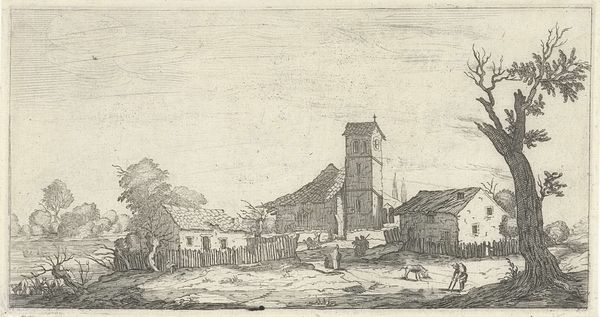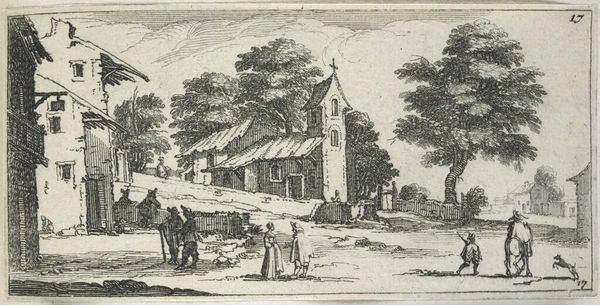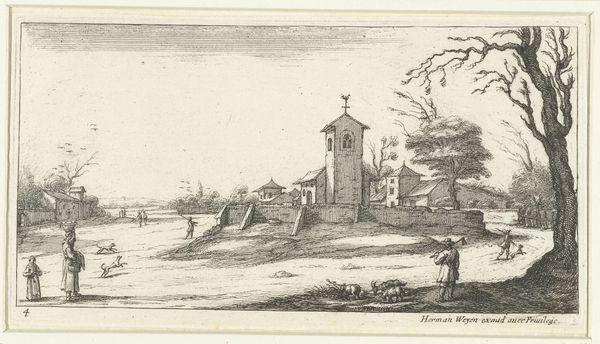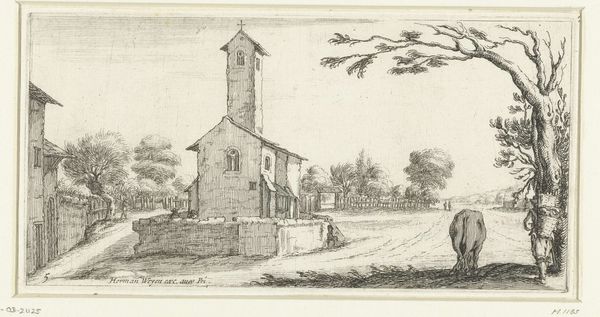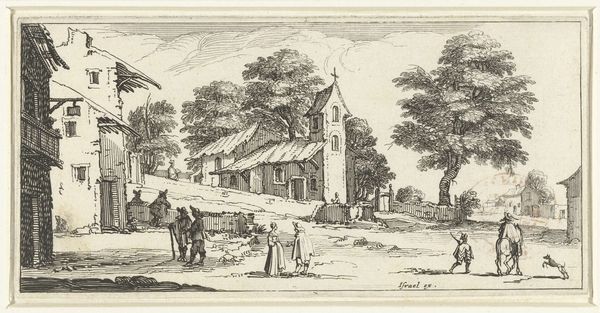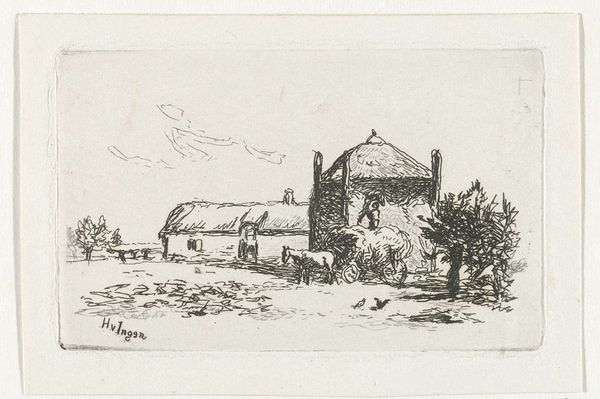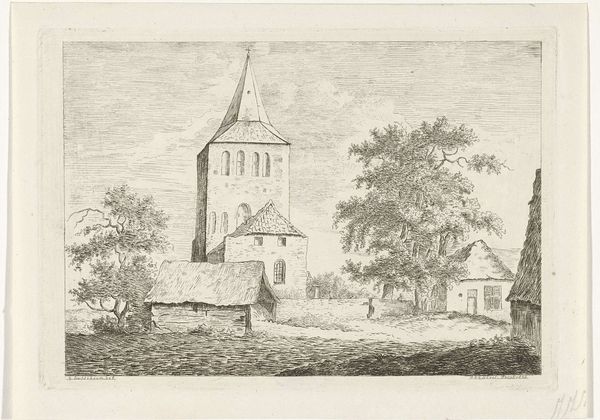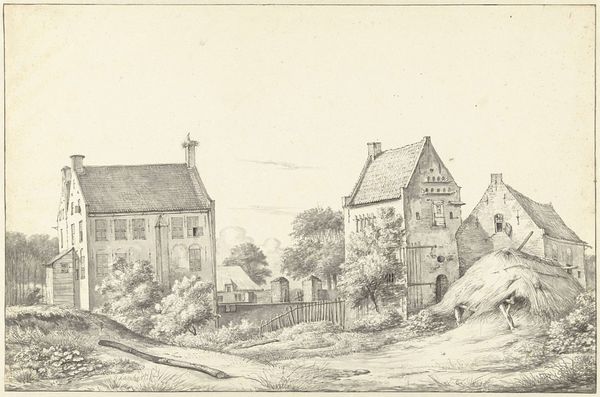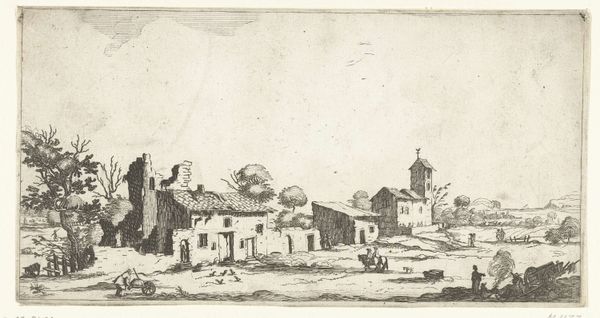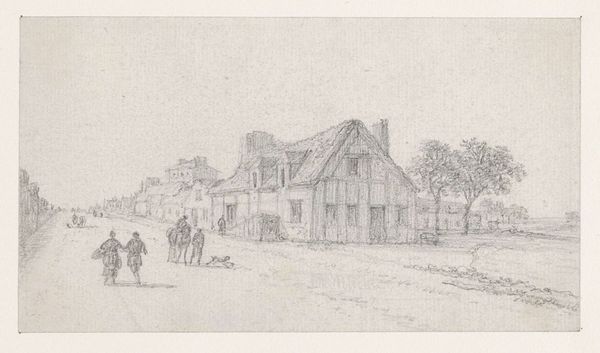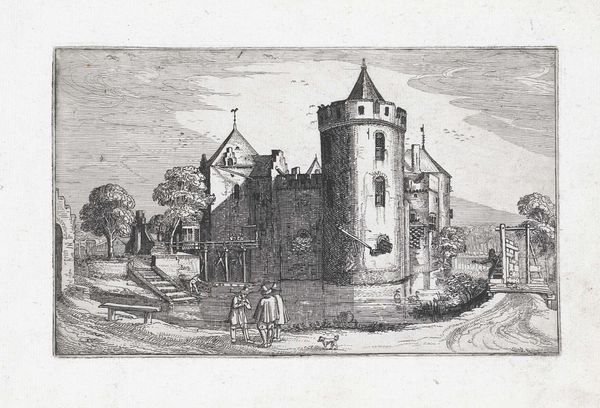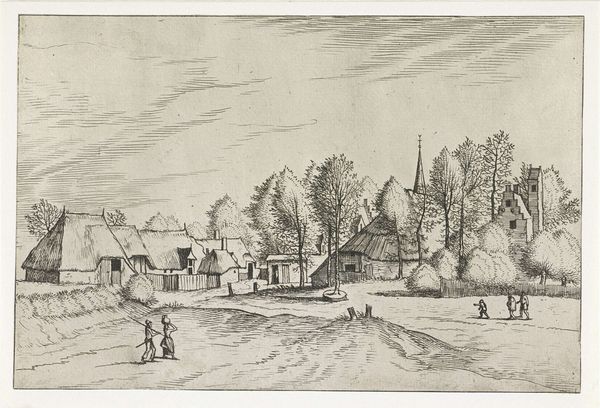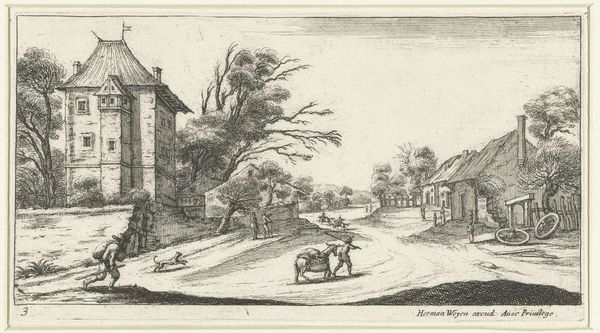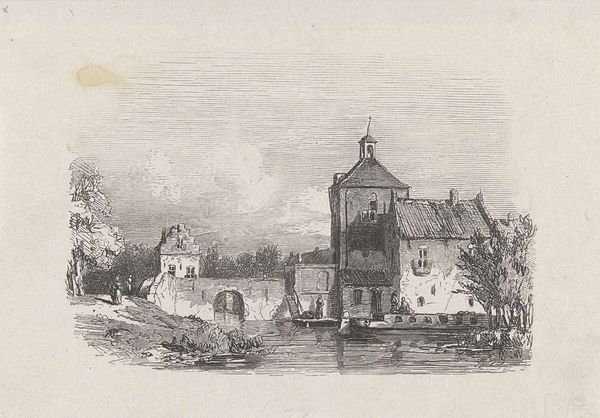
print, etching, engraving, architecture
#
baroque
# print
#
etching
#
landscape
#
engraving
#
architecture
#
building
Dimensions: height 98 mm, width 197 mm
Copyright: Rijks Museum: Open Domain
Editor: We’re looking at “Landscape with a Decayed Tower Along a Village Road,” a print made between 1621 and 1672 and currently held at the Rijksmuseum. It's an etching and engraving. It gives me a somber feeling with all the decaying architecture and lonely figures. What stands out to you about it? Curator: Initially, it’s the line work, the way Collignon uses hatching and cross-hatching to define form and create tonal variation, isn’t it? Notice how the density of lines dictates the shading and conveys texture, creating depth on a flat surface. The architecture seems secondary to the application. Editor: Absolutely. It almost seems more like an exercise in technique than a picturesque view. The sky especially is such a contrast of tight and loose marks, while the tower is consistently and meticulously hatched. Curator: Precisely. This controlled, almost scientific approach extends to the rendering of the architectural elements. The lines aren’t just descriptive; they articulate the formal properties of the tower itself - its volume, its geometry, its relationship to the surrounding space. Ask yourself how your reading of the work shifts based on the level of mark making present. Editor: It sounds like the etching, engraving itself are not only the medium but also the central theme? The contrasts really pull the eye across the whole composition. I think I see what you're getting at! Thanks for illuminating that. Curator: Indeed! The focus on the materiality of the artwork itself reveals the essence of the image. It becomes an exploration of form through process, challenging conventional representations of landscape. It also brings forth the understanding that art, ultimately, can exist within itself.
Comments
No comments
Be the first to comment and join the conversation on the ultimate creative platform.
